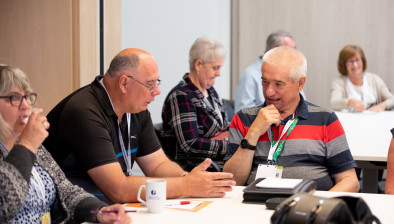Scottish Government to outline welfare principles and priorities

The Scottish Government is to set out the key principles that will underpin its approach to welfare following the agreement of the fiscal framework.
Social justice secretary Alex Neil said the new powers over benefits, which will be developed in consultation with people who receive them, will be based on the principles of dignity, fairness and respect.
Tomorrow Mr Neil will open a Parliamentary debate on social security, in which he will set out plans in more detail.
He confirmed the Scottish Government’s first priority will be to ensure new powers are founded on five principles which set out that:
The Scottish Government is working with the UK government to ensure a smooth transition of the new powers, and to guarantee people can continue to receive their benefits on time and with the right amount.
Through the Scotland Bill, the Carer’s Allowance, benefits for people with disabilities like Disability Living Allowance, Personal Independence Payment and Attendance Allowance and other benefits which are targeted at low income households, such as maternity grants and funeral payments, will be devolved to Scotland.
These benefits make up 15.3 per cent of welfare benefit expenditure in Scotland. The Scotland Bill also gives the Scottish Government the power to create new benefits.
Speaking ahead of Tuesday’s debate, Mr Neil said: “With our new social security powers we have the opportunity to take a different approach and develop policies for Scotland which will help to remove the stigma attached to accessing benefits.
“These policies will be based on principles which will ensure people are treated with dignity and respect. We want to show that social security can be fairer, tackle inequalities, and protect and support the vulnerable in our society.
“It’s understandable that people who receive benefits, who are ill, retired or disabled, will be concerned about how these changes will affect them. I want to reassure them that our priority is for them to receive their benefits on time and with the right amount.
“We want to ease some of the stress of applying for benefits and will make the system easier and simpler to navigate, and align it with our devolved services that support people.
“Over the past year we have engaged with and heard the views of more than 100 organisations through a series of events across Scotland. This is just the beginning of our engagement – we are committed to ensuring that, as we implement our powers and start to make changes, people continue to have a say in the debates and decisions that affect them.”









